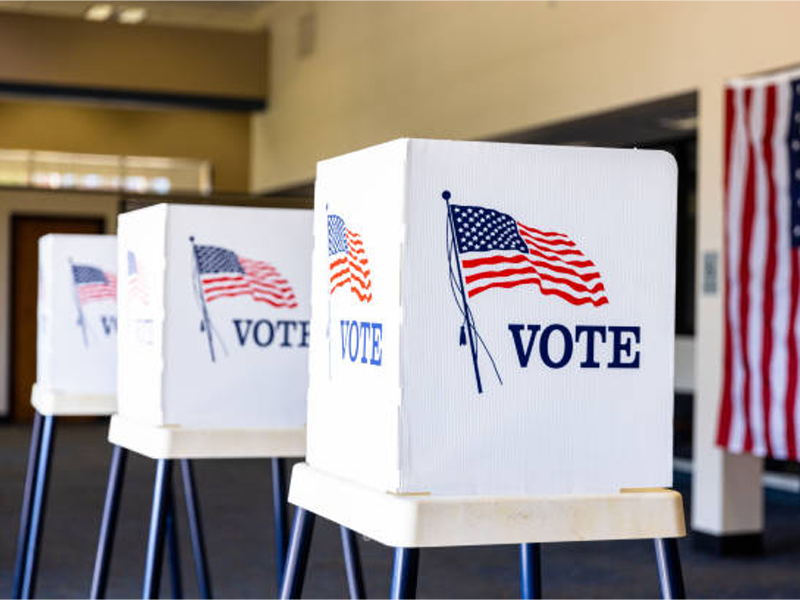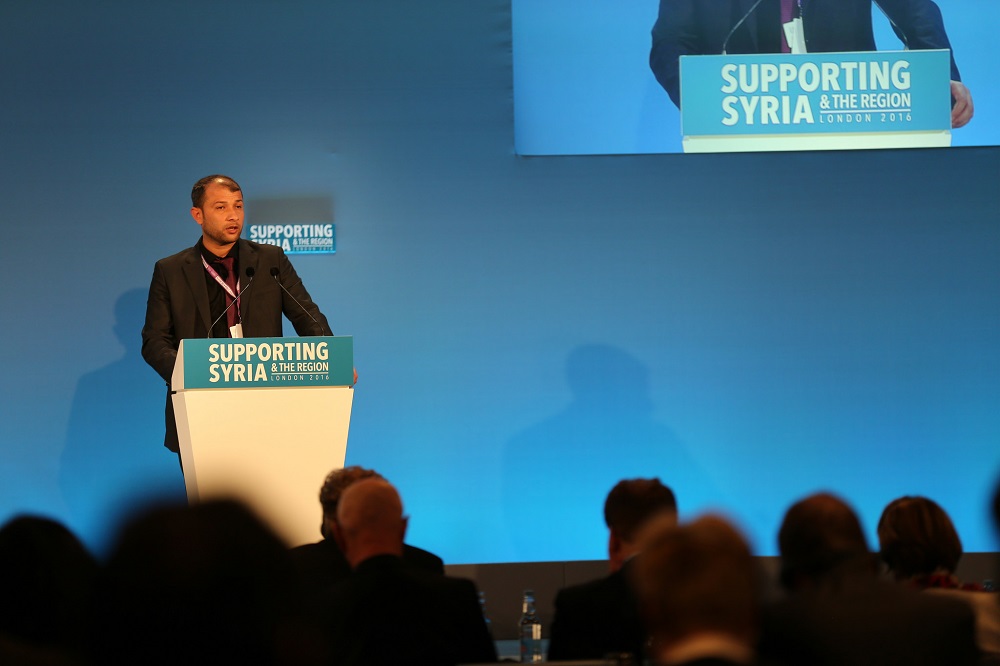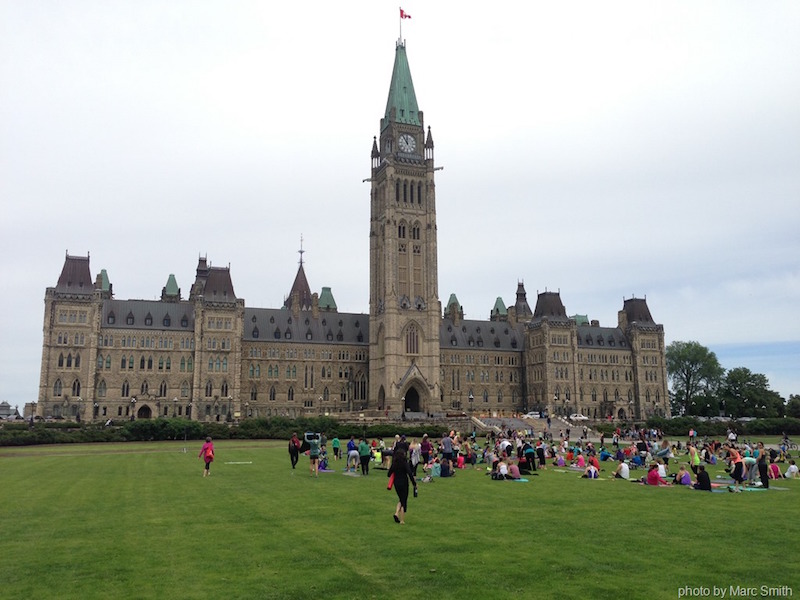Shortly after President Biden dropped out of the 2024 presidential race, his running mate, Vice President Kamala Harris, stepped up to the plate, a catalyst for the new tone for this election. The Democratic party quickly shifted support to their new candidate, with Democrats breaking campaign donation records within three days of Harris announcing her candidacy. Her rise was supplemented by critical endorsements, including Speaker of the House Nancy Pelosi and Senate Majority Leader Chuck Schumer. Harris is now set to face Trump for Presidential leadership this fall.
Both candidates’ promises to the American public give contrasting visions for the future. Regarding the international order and community, and more specifically, NATO, both Harris and Trump have proposed different views of what should be done to improve global security. Namely, Trump and his affiliates have proposed restructuring NATO to prioritize U.S. interests, whereas Harris pledges to strengthen the international alliance and collective security.
Harris: A Continuation of Biden’s Policies
The Democrats are a status-quo party, promising to strengthen and maintain the makeup of the international community. Vice President Harris has repeatedly stated her commitment to preserving the existing tools in order to maintain global security, and has criticized Trump’s contrasting comments about pulling out of NATO. She is predicted to follow President Biden’s policy plans for most foreign policy objectives. A significant priority for Harris has been to voice her support for Ukraine to continue the fight against Russia. At the 2024 Munich Security Conference, Harris stated, “We are committed to pursuing global engagement to uphold international rules and norms to defend democratic values at home and aboard and to work with our allied and partner in pursuit of shared goals…For President Biden and me, our sacred commitment to NATO remains ironclad”. Harris continued demonstrating strong support for the Ukraine war effort and emphasized the need to deepen alliances with Pacific Asian countries.
Although most of her plans align with Biden, there is also evidence that Harris is expected to take a stronger case against Israel’s current approach to the war in Gaza. Harris has also extended more support for individual security during the war in Gaza and described the conflict as a “humanitarian catastrophe,” arguing that Israel must do more to protect innocent civilians. Having repeatedly called for a cease-fire, Harris acknowledges there is only so much a United States President can do to change other states’ policies. Still, she promises to champion the existing global alliances that make the United States and the world a stronger and safer place.
Trump’s Radical Shift on NATO
Conversely, former president Donald Trump has repeatedly threatened to leave NATO. He has argued that allied countries are taking advantage of the United States, which spends approximately 3.5% of its GDP on NATO, more than ten times what the second most significant contributor spends. Ohio Senator JD Vance, Trump’s running mate, has also echoed that Europe needs to take more responsibility for its security and put ‘America first.’ In a rally in March, Trump criticized the unequal defence spending in NATO and stated he would “encourage Russia…to do whatever the hell they want” to allies who do not reach the minimum 2% GDP. With NATO’s heavy reliance on American money and support, Trump’s nationalist campaign approach to security will likely alter the organization’s agenda and damage the U.S.A.’s relationships with other allies.
Although experts say it is unlikely for Trump to quit NATO altogether, there are plausible alterations that Trump is predicted to adopt in his foreign policy plans. A February 2023 article from Trump’s affiliates states that new NATO concepts would prioritize switching logistics and artillery from American control to European countries. For the Trump administration to shift focus to national security, there would likely be a downsizing of America’s security role in combat in Europe. This narrowed national security vision fails to recognize or champion Article 5 of the Washington Treaty: “The parties agree that an armed attack against one or more of them in Europe or North America shall be considered an attack against them all.” The notion that international security is not a branch of national security undermines the NATO alliance commitments and would weaken a state’s international collective defence.
Another key proposal in Trump’s plan for NATO is restructuring the organization into a two-tier system. In this system, countries that do not reach their minimum 2% GDP spending would not gain defence security from the United States. Countries like Canada, Belgium, Spain, Croatia, and others would be at risk of not gaining support from allied Countries. Canada has long benefited from the protection of its military superpower neighbour. Despite its renewed commitment, Canada still falls short of reaching minimum GDP defence spending, potentially putting Canada at risk under Trump’s proposed two-tier system. This proposal defies the central values of collective defence and equal allyship promised in the Washington treaty and would dramatically alter NATO’s future. Ultimately, Trump’s approach to NATO contrasts the geopolitical reality, and European nations are ill-prepared to fill the current role of the United States.
NATO’s Future: The World is Watching
After the Second World War, the United States emerged as a dominant global power, centralizing them in the foundation of NATO and the post-war international order. The 1949 North Atlantic Treaty cemented American influence and authority within the alliance, as Article 13 requires any member nation to notify the U.S. government, which then informs the rest of NATO of a denunciation notice. The United States’ role in our international community is now at the heart of this election, making this election pivotal for NATO’s future.
The future of NATO hangs in the balance of the upcoming 2024 presidential election race between VP Kamala Harris and Donald Trump. Trump’s vision of a more nationalist security approach changes the core values of collective defence. His proposal for a two-tier system threatens to weaken the principle values of collective defence in transatlantic security. On the other hand, Harris’s vision represents a continuation of the preexisting system, emphasizing America’s role in stabilizing global alliances, shared defence values, and cooperation for security. As Americans plan to head to the polls, the world is watching. The November leadership decision will impact American policy and determine the direction of NATO and global security in the coming years. Whether the next president redefines or reaffirms America’s role, the outcome will have lasting implications for NATO and the global order.
Photo: Empty Voting Booths On Election Day stock photo (2022), adamkaz via iStock. Licensed under ISTOCK CONTENT LICENSE.
Disclaimer: Any views or opinions expressed in articles are solely those of the authors and do not necessarily represent the views of the NATO Association of Canada.




